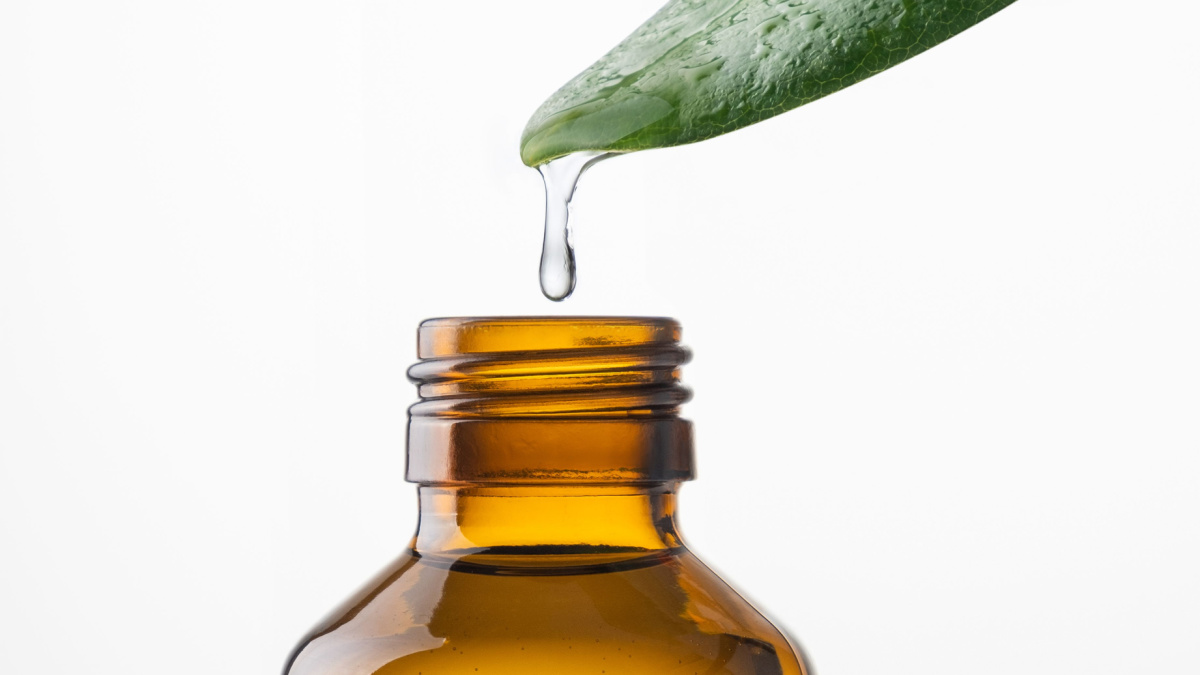Antifungal essential oils are a natural and effective way to combat fungal infections. These oils are extracted from various plants and have been used for centuries to treat a range of ailments. They have powerful properties that can help to eliminate fungi, prevent their growth and protect against further infections. Some of the most popular antifungal essential oils include tea tree oil, oregano oil, cinnamon oil, and clove oil. You can use these oils in a variety of ways such as topical application, inhalation, and ingestion, depending on the type of infection and the individual’s preference. Overall, antifungal essential oils are a safe and natural alternative to synthetic antifungal medications and can provide significant relief from fungal infections.
Benefits of Using Antifungal Essential Oils
Antifungal essential oils are a natural remedy for fungal infections that can offer several benefits. These oils contain compounds that have antifungal properties, which can help to eliminate fungal infections without the side effects of traditional antifungal medications. Using essential oils can also help to avoid the development of antibiotic resistance, which is a growing concern in the medical community.
Another benefit of using antifungal essential oils is that they can help to improve overall skin health. Essential oils are often used in skincare products due to their ability to nourish and hydrate the skin. When used to treat fungal infections, they can help to soothe irritated and inflamed skin, promote healing, and prevent further infections. Additionally, using essential oils can be a cost-effective alternative to traditional antifungal treatments, as they are often less expensive and can be used for multiple purposes.
Top Antifungal Essential Oils and Their Properties
Antifungal essential oils are becoming increasingly popular as natural remedies for fungal infections. There are several essential oils with antifungal properties, but some stand out as the most effective. The following are the top essential oils that can help combat fungal infections.
- Tea Tree Oil (Melaleuca alternifolia): Tea tree oil is known for its potent antifungal properties. It contains a compound called terpinen-4-ol, which exhibits strong antifungal activity against various types of fungi, including Candida and dermatophytes.
- Lavender Oil (Lavandula angustifolia): Lavender oil possesses antifungal properties that can help combat fungal infections. It also has soothing and anti-inflammatory properties that can provide relief from itching and irritation associated with fungal conditions.
- Oregano Oil (Origanum vulgare): Oregano oil is rich in compounds such as carvacrol and thymol, which have potent antifungal properties. It has demonstrated efficacy against various fungi, including Candida species.
- Clove Oil (Syzygium aromaticum): Clove oil contains a compound called eugenol, which exhibits strong antifungal activity. It has been found effective against fungal infections caused by Candida and other fungi.
- Lemongrass Oil (Cymbopogon citratus): Lemongrass oil possesses antifungal properties and can help inhibit the growth of fungi. It contains citral, which contributes to its antifungal activity.
- Eucalyptus Oil (Eucalyptus globulus): Eucalyptus oil has antifungal properties and can be effective against fungal infections. It contains a compound called 1,8-cineole, which exhibits antifungal activity against various fungi.
How to Use Antifungal Essential Oils
Antifungal essential oils are natural remedies that can be used to treat fungal infections. They can be applied topically or diffused into the air to kill fungi and prevent their growth. To use antifungal essential oils, it is important to dilute them properly before applying them to the skin. This can be done by mixing a few drops of the essential oil with a carrier oil such as coconut or olive oil. The oil blend can then be applied to the affected area using a cotton ball or swab. Some popular antifungal essential oils include tea tree, oregano, and peppermint oil. These oils can also be added to a warm bath to treat fungal infections on the feet or nails. In addition to their antifungal properties, these oils also have soothing and healing effects on the skin.
Precautions and Safety Measures When Using Antifungal Essential Oils
Antifungal essential oils are a natural and effective way to treat fungal infections, but it is important to take precautions and safety measures when using them. Firstly, it is essential to dilute the essential oils with a carrier oil before applying them to the skin. Undiluted essential oils can cause skin irritation, burning, and even allergic reactions. It is also important to perform a patch test before using any new essential oils to ensure that you are not allergic to them.
Secondly, some essential oils can be toxic when ingested, so it is crucial to only use them topically or aromatically. Additionally, pregnant women with certain medical conditions should avoid using certain essential oils. It is important to research and consult with a healthcare professional before using any essential oils, especially if you have any underlying health conditions or are taking medications. By taking these precautions and safety measures, you can safely enjoy the benefits of antifungal essential oils.
Antifungal Essential Oils for Skin Infections
Antifungal essential oils are an effective natural remedy for skin infections caused by fungi. These oils possess powerful antifungal properties that can help to eliminate the fungus causing the infection. Some of the most effective antifungal essential oils for skin infections include tea tree oil, lavender oil, oregano oil, and thyme oil. These oils can be applied topically to the affected area or added to a carrier oil for a gentler application.
Tea tree oil is one of the most popular antifungal essential oils for skin infections due to its potent antifungal and antibacterial properties. It has been found to be effective against a wide range of fungi, including those that cause athlete’s foot, ringworm, and nail fungus. Lavender oil is another powerful antifungal essential oil that can help to soothe the skin and reduce inflammation. Oregano oil and thyme oil are also effective against fungal infections and can be used in combination with other essential oils for a more potent antifungal blend. Overall, antifungal essential oils are a natural and effective way to treat skin infections caused by fungi.
Antifungal Essential Oils for Nail Fungus
Nail fungus, also known as onychomycosis, is a common fungal infection that affects the nails. Certain essential oils possess antifungal properties that can be beneficial in addressing nail fungus. Tea tree oil is one such essential oil known for its potent antifungal activity. It contains a compound called terpinen-4-ol, which has been found to effectively combat fungal infections, including those affecting the nails. Tea tree oil can be applied topically to the affected nails after diluting it with a carrier oil like coconut or olive oil. Its antifungal properties can help inhibit the growth of fungi and promote healthier nails.
Another essential oil that shows promise in treating nail fungus is oregano oil. Oregano oil contains powerful antifungal compounds like carvacrol and thymol, which have demonstrated effectiveness against various types of fungi. Diluted oregano oil can be applied directly to the affected nails using a cotton swab. It is important to note that oregano oil is highly concentrated, and proper dilution is necessary to avoid skin irritation. Regular application of oregano oil can help fight the fungal infection and promote the growth of healthier nails.
The Power of Antifungal Essential Oils in Fighting Fungal Infections
Antifungal essential oils have proven to be highly effective in fighting fungal infections. Not only are they natural and safe to use, but they also offer a wide range of therapeutic benefits. Essential oils such as tea tree, lavender, and oregano have been extensively studied for their antifungal properties and have shown promising results in treating various fungal infections.
With the rising concern of drug-resistant fungal infections, antifungal essential oils offer a viable alternative to conventional treatments. Furthermore, the use of essential oils in combination with other natural remedies and lifestyle changes can help boost the body’s immune system and prevent recurrent infections.




